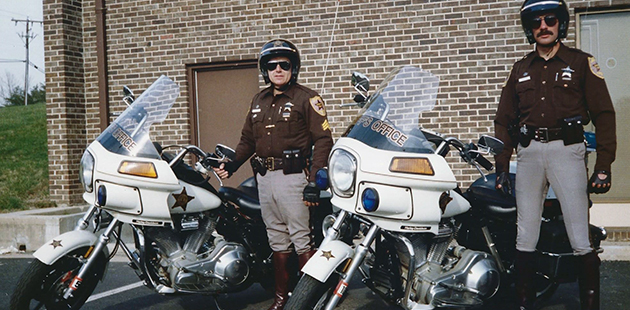Police Work: The breaking of an honest cop Chapter 3
Chapter 3
It all started in the spring of 1987.
I had taken a few months off during my divorce. At that time I was living with a friend. Ed was a sergeant on the department who was later hired by the U.S. Customs Service.
I received a phone call from another friend who told me that there was a woman named Carole Carter who was looking for someone with a law enforcement background to stay at her home as security while she was going through settlement proceedings from a divorce.
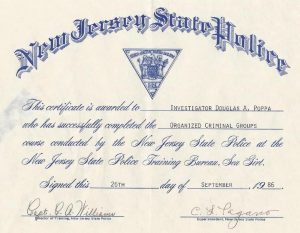 I made contact with Carole Carter and arranged to meet with her.
I made contact with Carole Carter and arranged to meet with her.
She picked me up at Ed’s residence the next day and drove me to Sterling to meet her family, then we headed to the estate outside of Middleburg where she was still living. She gave me a tour of the estate.
Carole Carter also told me that her ex-husband, William Douglas Carter, was still living in a guesthouse on the property but there was a court order banning him from going into the mansion.
She said she was fearful that he might do something to her and that is why she was looking for someone to stay in the house. She was also extremely nervous and told me that she hated her husband. It sounded a little strange why she wanted to stay on the same property as he was living on, particularly since she stated she was afraid of him.
I told Carole Carter that she should stay with her daughter while the settlement was taking place but she was adamant about staying in the mansion.
She showed me a Smith and Wesson snub-nosed .38 caliber revolver that she said she bought for protection.
Talking about her ex-husband, she made a statement to me that she would shoot herself even if she died if she could make it looked like he did it, so he could spend the rest of his life in jail and ruin the rest of his life.
I talked to her and told her statements like that are crazy, stay with your daughter until this matter is resolved and down the road that the whole matter would be behind her.
I had heard worse from people who were going through divorce settlements; sometimes they say terrible things.
I had spoken to my friend, Bill Harris, who had been promoted to lieutenant on the sheriff’s office about what had happened and what Carole Carter had told me. He thought that the whole situation sounded badly and possibly that she might be setting me up for a confrontation with her ex-husband.
Even though it probably might have been a good gig at the time, it just sounded like a bad situation all the way around anyway, so I called Carole Carter back and declined the job offer.
I had also talked to Ed about it. Ed was outside his house the day Carole Carter picked me up in her blue Cadillac.
Mary, a friend I was dating at the time, who was a probation officer, was also aware of what happened.
Four years down the road Bill, Ed and Mary would be subpoenaed as witnesses in court.
Then in the summer of 1987, I saw a television news broadcast stating that Carole Carter had been shot allegedly by her ex-husband and had survived.
I felt guilty about it because I thought that if I had taken the job maybe she would not have been shot.
I went to the Criminal Investigations Division to tell them what I knew.
When I walked in I saw Bill Harris standing inside. Bill was now a lieutenant in patrol.
I told him that the woman who was shot, Carole Carter, was the same woman who had wanted to hire me a few months back and the one we had talked about.
Bill asks if I had told Vernon Beamer, the captain in charge of the Criminal Investigations Division. I said not yet. Bill tells me that Beamer is in his office.
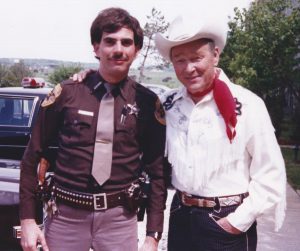
I go down to Beamer’s office and tell him about the gun and the statement Carole Carter made to me. He tells me that William Carter was in upstate New York and they were waiting to get him back to the county and that they had an airtight case.
As for the .38 caliber revolver that Carole Carter had shown me in the spring of 1987; that was the weapon she was shot with. I later learned that she suffered a non-life threatening wound in the shooting.
••• •••• ••••• •••• ••••
January 1988 I am back on the department. I hear that the trial of William Douglas Carter was coming up.
I went to the office of Loudoun County Commonwealth’s Attorney, William Burch, and told him of my meeting with Carole Carter and the statement that she made to me in the spring of 1987. Burch tells me the case was all wrapped up.
Sometime later I heard that William Carter was found guilty of attempting to kill his ex-wife and sentenced to 14 years in prison.
I never had any involvement with the trial and didn’t know how much evidence they had against William Carter.
I had done my part before the trial by informing the head of the criminal investigation division and the prosecutor about the statement Carol Carter made to me.
Over the years cops in the department would talk about the Carter case off and on. There were rumors that Carter may have been set up. Deputies who worked in the county jail before he was transferred to the state prison would talk about Carter and how he maintained his innocence.
I was a cop and thought as most cops do, that everyone in jail says they are innocent.
Now I know better, some are truly innocent.
In the back of my mind, I would sometimes think about the statement Carole Carter made to me. I had seen a television movie about a woman who was setting up her husband. There were other things going on in the sheriff’s department that just weren’t right. All this would just linger off and on in my mind.
Then in November 1991, I was leaving the Courthouse and I saw one of the Circuit Court judges in the parking lot. I said hello and he made a joke asking if we could talk or was I working undercover. At that time I talked to him about the Carter case and the statement Carole Carter had made to me before she was shot.
I told him that I was having doubts about whether my information had made it to the defense. He said under the law you know that would be Brady material, exculpatory evidence, and should have been turned over to the defense.
I asked him if it would be out of line for me to contact Carter’s defense attorney at the time and ask him. He said something to the effect that he knew I would do what I had to do.
So that’s what happened.
I went to the court to find out who the defense attorney was that represented William Douglas Carter at his trial.
I ended up contacting the defense attorney and told him what I knew. He said he never heard anything like I had just described to him. He told me that Carter had new attorneys who were working on a writ of habeas corpus.
He asked for my phone number and later I was contacted by William Carter’s attorneys.
Little did I know that that would be the beginning of the end of my police career.
On November 20, 1991 I testified in Loudoun County Circuit Court, describing in detail the statement Carol Carter made to me, and also that I had told Captain Vernon Beamer of the sheriff’s department in 1987 and Loudoun County Commonwealth’s Attorney, William Burch in 1988 before William Carter went on trial, about Carol Carter’s statement and the .38 caliber revolver.
Another hearing was set for January 8, 1992.
I heard that after the sheriff found out what I testified to there was a meeting with other top sheriff’s office officials and the conversation concerned what they were going to do about me.
Another cop told me that one of the sergeants who was a close friend of the sheriff and was at that meeting stated, “Doug is finished in this department.”
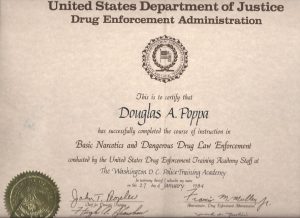 Later I was told that Carole Carter was seen coming and going from the criminal investigations office and the commonwealth attorney’s office several times.
Later I was told that Carole Carter was seen coming and going from the criminal investigations office and the commonwealth attorney’s office several times.
I also had a bigger problem.
Loudoun County Sheriff, John Isom told me that Beamer and Burch were saying I never gave them any information, with Burch remembering only that I told him Carole Carter had “suicidal tendencies.”
Later Carole Carter would say that she never made the statement to me and that she never drove me to the estate and gave me a tour of the property.
All three of them, Burch, Beamer and Carole Carter were lying.
The Loudoun Times Mirror ran a story on November 27, 1991, titled, ‘Explosive’ testimony re-ignites Carter case. In the article Burch told the paper, ‘The only thing he might have said was that he [Poppa] thought she had suicidal tendencies.’
That was William Burch’s defense throughout this whole ordeal. That all I did was tell him that Carole Carter had suicidal tendencies.
A first-year law school student would know how absurd that statement was.
Let’s just say for sake of argument that I had walked into his office and said, “Bill, can I talk to you for a minute. I had contact with the victim before she was shot and I think she had suicidal tendencies.” “Okay, Doug thanks for telling me that have a nice day.”
An experienced prosecutor working an attempted murder case, wouldn’t he have asked the question, “Why do you think that she had suicidal tendencies, what are you basing that on.”
Forget about Burch for a second. I was an experienced investigator. Did anybody really believe that I would walk into a prosecutor’s office who was getting ready to handle an attempted murder case and just say “suicidal tendencies” and leave it at that?
But that is exactly what Burch wanted people to believe.
Burch’s statement was utter nonsense and totally ridiculous beyond belief.
Of course, Burch had to say what he said no matter how ridiculous it sounded because what I indeed told him was exculpatory and would have hurt his case against William Carter.
I remember thinking at the time that, I’m no attorney but even if they believe what Burch stated, wouldn’t “suicidal tendencies” be something that the defense should have been given anyway.
Later Burch would say that I told him after the trial about suicidal tendencies, not before the trial, although I did indeed tell him before Carter’s trial the entire statement.
Carter was convicted in March of 1988.
But after Carter was convicted there was an appeal several months later and still, nothing was disclosed to the defense.
Sheriff Isom told me to keep my mouth shut, that the whole thing would blow over and that I could open a can of worms. I asked him how could this blow over, a man who was sitting in prison for four years could be innocent.
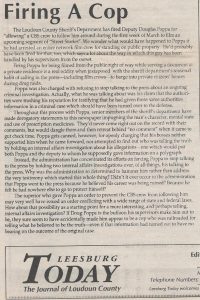 Law enforcement doesn’t wait for things to blow over. We investigate to uncover the truth while the trail is hot.
Law enforcement doesn’t wait for things to blow over. We investigate to uncover the truth while the trail is hot.
The sheriff stated that when I testify at the second hearing in January that I could say that after thinking about it, because it was some time ago, maybe my recollection wasn’t clear.
I told him that was crazy, what I testified to was the truth and that there were witnesses who could support my testimony.
It didn’t faze him in the least.
The sheriff told me to keep my mouth shut and not talk to the media, even after I had asked him to initiate an internal affairs investigation which he refused to do.
He said that there was nothing he can do because it was between the commonwealth’s attorney and myself.
This shocked me. I told the sheriff that I had worked for the department and so did the captain. I asked, “Didn’t that make it a departmental matter.” His answer was “No.”
The highest law enforcement officer in the county and he was telling me that there was nothing he can do.
I had just testified that a sheriff’s captain and the prosecutor were given evidence that should have been turned over to Carter’s defense, both Burch and Beamer are denying it, and the sheriff’s answer was that there was nothing he could do, except for me to keep quiet.
Sheriff Isom preferred, however, to wait until apathy obscured the truth, rather than immediately initiate an internal affairs investigation of what happened.
Either I had perjured myself or I was telling the truth.
I told the truth when I testified, but that meant that the commonwealth’s attorney and the sheriff’s captain withheld material evidence. The right thing for the sheriff to do was to initiate an investigation to determine who was telling the truth, particularly to consider whether an innocent man was sitting in a prison cell.
But this never happened.
When the Commonwealth’s Attorney and his deputy started to attack me in the local papers and call me a liar, I went back to the sheriff and asked him what he was going to do about it.
Nothing is what he said and I was still to keep my mouth shut.
I was an officer of the law. I had just accused another cop and a prosecutor of official misconduct and the sheriff wanted to do absolutely nothing.
No other cop in the entire history of Loudoun County had ever done what I did.
The sheriff thought the whole thing would just fade into obscurity.
My mistake was believing that the sheriff would want to uncover the truth, however, I was dead wrong.
Why didn’t he immediately initiate an internal affairs investigation? Why wasn’t he interested in the witnesses that could corroborate my testimony? Why weren’t Beamer and I asked to submit to a polygraph examination?
He could have requested the Virginia State Police to initiate an investigation. The VSP could have requested permission from the proper authority, the governor I believe, to start an investigation on the prosecutor. But that never happened.
What I didn’t know at the time when I first testified was that William Carter was claiming that the sheriff had perjured himself at his trial back in 1988.
When I heard that, it was clear to me the charges made against the sheriff by Carter, enhanced the sheriff’s interest in the outcome of what I had testified to, so that is why I was told to keep quiet.
But I didn’t keep quiet.
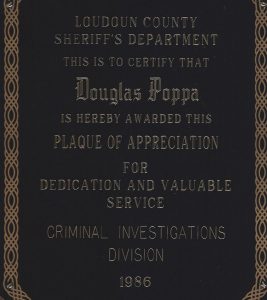 What I also didn’t know at the time was that other evidence, including key police reports, was withheld from Carter’s defense in the trial.
What I also didn’t know at the time was that other evidence, including key police reports, was withheld from Carter’s defense in the trial.
When I was contacted by the local papers, Leesburg Today, The Loudoun Times Mirror and finally the Washington Post, I spoke out.
If the sheriff and commonwealth’s attorney thought that I was going to have my hands tied behind my back while they pounded me in the face both on and off the record in the press they found out that they were dead wrong.
You don’t shine a light on the truth by suppressing somebody’s First Amendment rights, but then you do if you don’t want to shine a light on the truth.
Things were getting crazy.
I was quickly becoming a pariah in my department. Cops started to avoid me, even those I had worked with for years. A very few maintained contact with me, in spite of intimidation by the sheriff and those close to him. Some would see me and say they knew I was telling the truth but what I was doing to the department and Beamer was wrong.
Of course, what was happening to me made no difference to them.
And forget about that maybe a man who was sitting in prison might be innocent.
I was seeing the bad side of law enforcement; keep your mouth shut because you are going to hurt another cop or the department.
I walked into the narcotics office one day and was told that the sheriff had told the other investigators that they couldn’t work with me. I still had active cases going on and now nobody could work with me.
I was in and out of the sheriff’s office almost day after day getting threatened with demotion, transfers and or being fired.
Sleep was becoming non-existent for me. It was like living in a recurring nightmare.
And it kept getting worse. Like having a permanent adrenaline rush day after day.
One of the toughest things throughout this whole mess were the cops, many of whom I had worked with for years. They just stopped talking to me. They ignored me when they saw me even when I was off duty. When I would see some of them in a store they would turn the other direction avoiding contact with me.
When I walked into the county office buildings and the courthouse I would get nasty looks and people would turn away to try to avoid getting close to me and go in the other direction.
In the office it was like being a ghost, you’re there but nobody sees you. That was really tough to deal with. I didn’t show it, but inside it was ripping my guts out.
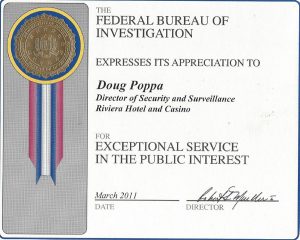
I was trying to understand why the cops were doing that, maybe because they were afraid of losing their jobs if they stood by me. It still wasn’t right though, it didn’t hurt any less.
Over the next few months I would have feelings of sadness and anger, then hope and anticipation that something good was going to happen, although things kept getting worse.
One night I went home and started to cry. Just out of the blue, for no reason. I don’t mean just tears. I broke down and cried like a baby. I was becoming a mess.
I had all my feelings bottled up inside and anger was at the top of the list. How can this be happening to me I would say. I didn’t do anything wrong.
I testified to what I knew and my whole world was turned upside down.
The Loudoun Times Mirror wrote in an article what had been going on in the sheriff’s office for years. “… The sheriff’s office is run by a cabal of close friends of Isom’s. This group allegedly metes out promotions through a buddy system, threatens deputies with internal investigations that are many times non-existent and fires deputies who are out of favor with the group.”
I eventually contacted an FBI agent I knew and was later interviewed by agents of the Public Integrity Section of the FBI.
They asked a ton of questions on a whole range of things that had been going on in the sheriff’s office over the years and I didn’t hold back on anything.
When the sheriff found out I was interviewed by the FBI, there I was back in his office. He wanted to know what I had told the FBI. I told him if he wanted to know he should call the FBI himself.
He told me that I worked for him and that he could fire me any time he wanted. I told him that I didn’t work for him that I worked for the citizens of the county.
I knew at this point that my job was in jeopardy. It was just a matter of time I thought, that the hammer would fall on my career.
I knew one thing and that was that I was not going to back down.
I then heard that the Virginia State Attorney General’s Office requested that agents of the State Police Bureau of Criminal Investigation conduct an investigation. This investigation was not requested by the sheriff. It was to protect the State’s case against Carter, I would later learn.
I also found out later that Sheriff Isom and Mary Sue Terry, the Virginia Attorney General were close friends. Isom gave the nominating speech for Terry at the 1988 Democratic Party Convention.
I don’t know if that close political tie between Isom and Terry had any bearing on the events that would take place, but who knows.
I was having some hope believing that the state police would ask Beamer, Burch and myself to submit to a polygraph examination and uncover who was telling the truth and who wasn’t.
But that hope never came.
As a matter of fact, Burch and Beamer came under no scrutiny at all, but I did.
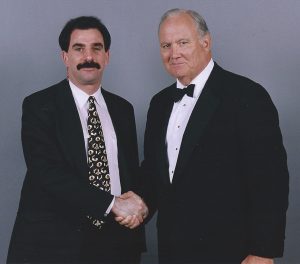
I was told by another deputy that an investigator with the sheriff’s office criminal investigation division asked his supervisor, “Why don’t they put everybody on the polygraph,” and the supervisor’s answer was, “What if Doug is telling the truth, then we have a real problem.”
The problem was that I was telling the truth and nobody wanted to hear it.
At the same time, patrol supervisors were telling their officers that what I was doing was wrong and could hurt the department.
See, the way the system works is those in power have the power.
One criminal investigator against a captain and commonwealth’s attorney, then obviously the investigator who is at the bottom rung of the ladder has to be the one who is lying.
I was Criminal Investigator of the Year in 1986, had letters of commendation in my file, outstanding evaluations, but now my credibility was in question.
In the 1980s I was handpicked by the sheriff to represent Loudoun County on the Northern Virginia Regional Narcotics Enforcement Task Force working under the direction of the Virginia State Police Bureau of Criminal Investigation. I was sworn in as a special state police officer so I had arrest authority throughout the entire state.
I was involved in an undercover operation with the Drug Enforcement Administration in a transfer of precursor chemicals with one of the biggest manufacturers of PCP in Northern Virginia.
Although I had testified in federal and state court for years, now, suddenly, when it suited their purposes, I was deemed untrustworthy.
I was never investigated for lying under oath, criminal wrongdoing, misconduct or violating the oath that I swore to when I became a cop, but now I was a piece of trash and a liar.
How would that make you feel if you were an honest cop and this was happening to you?
All photos provided by Doug Poppa
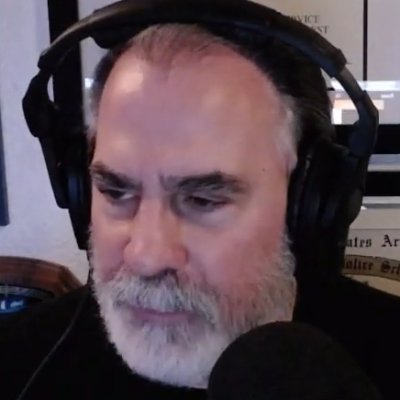
Doug authored over 135 articles on the October 1, 2017 Las Vegas Massacre, more than any other single journalist in the country. He investigates stories on corruption, law enforcement and crime. Doug is a US Army Military Police Veteran, former police officer, deputy sheriff and criminal investigator. Doug spent 20 years in the hotel/casino industry as an investigator and then as Director of Security and Surveillance. He also spent a short time with the US Dept. of Homeland Security, Transportation Security Administration. In 1986 Doug was awarded Criminal Investigator of the Year by the Loudoun County Sheriff’s Office in Virginia for his undercover work in narcotics enforcement. In 1992 and 1993 Doug testified in court that a sheriff’s office official and the county prosecutor withheld exculpatory evidence during the 1988 trial of a man accused of the attempted murder of his wife. Doug’s testimony led to a judge’s decision to order the release of the man from prison in 1992 and awarded him a new trial, in which he was later acquitted. As a result of Doug breaking the police “blue wall of silence,” he was fired by the county sheriff. His story was featured on Inside Edition, Current Affair and CBS News’ “Street Stories with Ed Bradley”. In 1992 after losing his job, at the request of the Federal Bureau of Investigation, Doug infiltrated a group of men who were plotting the kidnapping of a Dupont fortune heir and his wife. Doug has been a guest on national television and radio programs speaking on the stories he now writes as an investigative journalist. Catch Doug’s Podcast: @dougpoppa1

